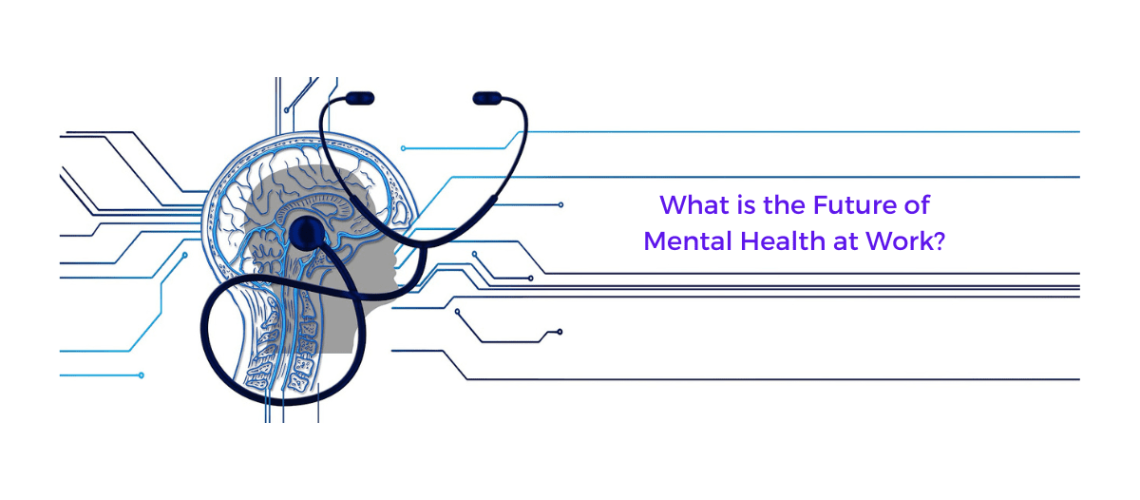In order to consider this question we need to look back at where it began, then look at what is happening with it right now before diving into what needs to change so that we can ensure that it evolves appropriately. I also want to set the bar right now by saying that I don’t think it is appropriate at the moment and neither is the entire mental health system within the UK. A bold statement perhaps and one that needs a deep dive no doubt and is way beyond the scope of one article.

Where Did It Begin?
As a nation we are becoming more and more aware of the importance of proactively taking care of our mental health right across the board, not just at work. Reports like the Stevenson/Farmer review and campaigns being run by charities have raised a lot of awareness. However, there is an enormous void between the knowledge generated through awareness and any action being taken to effectively help people. Research has found that 300,000 people with long-term mental health problems lose their jobs annually.
There is still a long way to go until employees’ mental health is truly taken seriously by all employers and proactive measures introduced to look after them. Through experience I know some companies still see this as a tick box exercise and only pay lip service, because they see any training in this area to be a waste of time, money and resources.
Perhaps this is a result of the focus being on Awareness training, while this is helpful to recognise someone struggling sooner, current training only enables people to point those struggling to existing resources. It also does not equip them with any skills to deal with the content that may be dumped on them in the course of their work in dealing with someone struggling. The problem here is that the mental health system in the UK is sadly inadequate. This is not the fault of those working in the system providing the care, and I am absolutely not denigrating their work. What I am saying is that pointing people to a system that is already overwhelmed and unable to to deliver helps no one.
I firmly believe that the entire mental health system needs overhauling. The way it operates is ineffective and does not cater for the needs of the people it serves, which is down to mismanagement and not updating it to the changing needs of the population, and blindly following an outdated operating model that clearly does not work.
So How Did We Arrive At This Point?
1910’s: Psychology and mental health are new fields of interest compared to many other disciplines. The first interest in psychological effects at work arose from the work of the Health of Munition Workers Committee, which was set up in 1915. They realised workers were less productive when tired and worked increasingly long hours.
1930’s: Doctors started to work in the industrial setting to evaluate eligibility for worker’s compensation. These doctors were not well received by the workers, who saw them as a management tool. Recognising the need for standards and good practice among doctors working in the industrial setting, the Association of Industrial Medical Officers was founded in 1935.
1960’s: Occupational physicians began to demonstrate an interest in the psychological aspects of work at this time. By 1967, the Association of Industrial Medical Officers became the Society of Occupational Medicine. This change showed how the emphasis of the medical officers’ work had shifted from looking at the effects of industrial work to all types of work.
1970’s: Since the 1970s, the work of occupational health workers has become more concerned with the psychological aspects of work -the Health and Safety at Work etc. Act 1974 was released and is the primary legislation covering occupational health and safety in Great Britain.
1990’s: A survey undertaken in 1996 showed how much interest there was in the psychological aspects of work. 98% of organisations asked, considered employees’ mental health a company concern. 81% thought there should be a company policy for mental health, but only 20% had a policy.
2000’s: By this point, several policies have been introduced or updated to improve the wellbeing of those struggling with mental health, such as the Equality Act 2010.
2017: Research seems to be blooming.
The Stevenson/Farmer report, ordered by Government, found that around 15% of people at work have symptoms of an existing mental health condition and that the annual cost to employers is between £33 billion and £42 billion. Research by Deloitte found that 56% of people believe that their wellbeing is taken into consideration in business decisions “to a little extent” or “not at all”.
Awareness and research are great as long as positive action is taken on the back of it, yet it appears that we still do so little with this knowledge to proactively maintain employees’ mental health and wellbeing at work. I appreciate that this is also down to individual perception of poor mental health and how other people will view them. The British stoicism and stiff upper lip is great during a crisis but not as an effective ongoing strategy.
There is still a stigma, a black mark against people who struggle with their mental health and it would be much more beneficial for employers to provide their employees with the tools and skills to help them manage stress effectively by developing and strengthening their Emotional and Psychological Resilience. This means teaching all employees tangible, practical tools that they can use at work and in the rest of their lives. It also means equipping managers with the extra skillset to cope with one of their team who is having a hard time much more compassionately and productively. The benefits far outweigh the financial investment from a company, because the return on investment in morale, trust, respect, performance, reduced absence etc will come back in spades.
What Can We Do?
We have a monumental task ahead of us to continue to change cultural stigmas about poor mental health. We have to start earlier and teach our kids to be more emotionally aware, intelligent and resilient because then they can become psychologically resilient. It is also crucial that we all take charge of our own mental health and not wait for someone else to do it for us.
As an employer you will have a much more productive and happy company when you invest in their mental wellbeing and this will save you money in the long run.
I provide corporate training packages that teach skills in Emotional and Psychological Resilience. They are a blend of face to face and online learning that is CPD Accredited. They have been researched and developed since 2007 and taught around the world for the last 6 years. You can find out more about these courses by clicking on the following link:
https://simon-maryan.thinkific.com/collections
There are so many rabbit holes that I could have dived into here, and perhaps I will in future articles, because like you, I have my own thoughts on how to update the system and enhance the level of mental health care available to us all in the UK. I would really like to hear your thoughts on this.
References and Resources:

